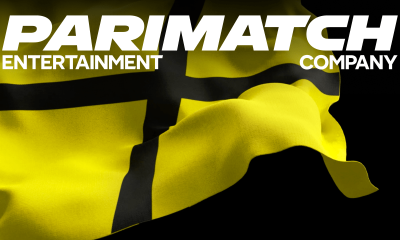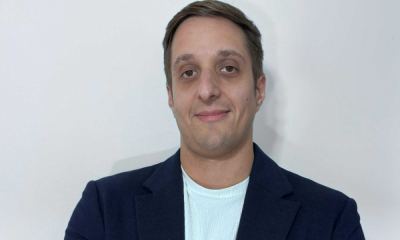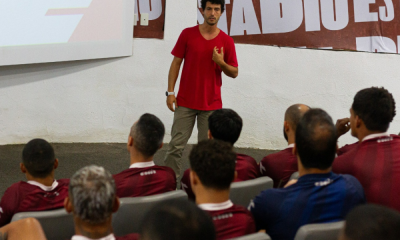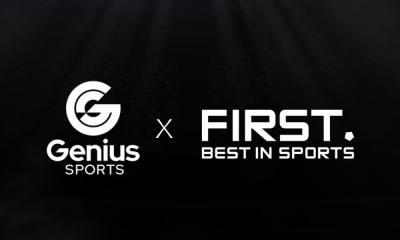eSports
ISFE Reinforces Its Team in Brussels
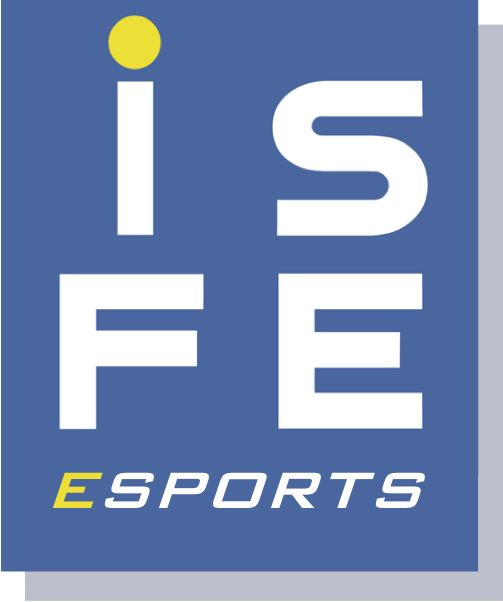
ISFE is pleased to announce the appointment of Shweta Kulkarni as Director of Communications for ISFE and Sergi Mesonero as Head of ISFE Esports.
ISFE CEO Simon Little said: “We are delighted to strengthen the ISFE team with two senior appointments enabling us to further promote policies that will help one of Europe’s most vibrant creative and innovative sectors to generate jobs and drive growth – needed now more than ever.”
Shweta comes to ISFE with 15 years’ experience in media relations and communications both from large corporations and trade bodies, and has a double degree in computer science and communications. In her role Shweta reports to Ann Becker, Head of Policy and Public Affairs.
Shweta said: “I am excited to start this new role at ISFE. The video games industry is a multi-faceted industry with many stories to communicate. I look forward to working with the ISFE team to ensure that all our stakeholders understand our industry: its creativity, its contribution to society and the economy and the importance of the players who are at the heart of everything we do.”
Sergi was previously co-founder and Public Affairs Vice President at LVP (Liga de Videojuegos Profesional), the biggest esports organisation in the Spanish-speaking market; co-ordinator of the esports committee at AEVI (Asociación Española de Videojuegos), and Chair of International Esports at Universidad Católica de Murcia (UCAM).
Sergi said: “ISFE Esports provides a common and authoritative voice for the sector.
With integrity, fair play and our players’ wellbeing at the heart of everything we do, I am committed to working to ensure that the industry is heard, the sector grows and that diversity, skill and talent can continue to thrive in Europe’s esports ecosystem.”
Powered by WPeMatico
eSports
Esports World Cup Foundation and Lenovo™ Partner to Power the Next Generation of Esports Champions
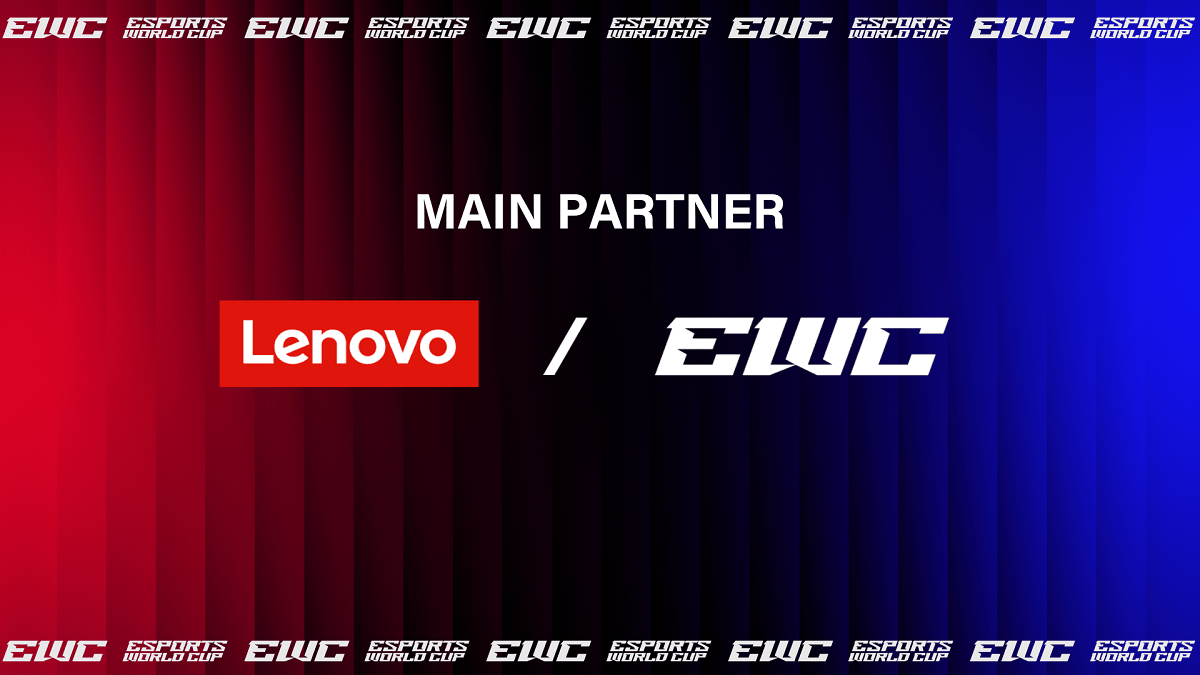
Lenovo’s Legion premium gaming brand joins the world’s largest esports event to fuel elite performance and elevate the fan experience through world-class hardware
The Esports World Cup Foundation (EWCF) and Lenovo, announced a partnership to make Lenovo’s Legion brand of gaming devices the Official PC & Gaming Hardware partner of the Esports World Cup 2025 (EWC). Lenovo Legion is the one of the world’s leading gaming ecosystem brands, and will be bring its relentless commitment to innovation and performance to the global stage, empowering EWC athletes to compete at their highest level.
From training rooms to tournament zones, EWC athletes will be equipped with Lenovo Legion Towers, Lenovo Legion laptops, and peripherals – built for elite esports play with advanced thermal systems, high-performance silicon, high refresh-rate displays and low latency keyboards and mice that meet the demands of top-level competition.
Key models such as the Legion Tower 7i and Legion Tower 5i will feature across the event’s player infrastructure, delivering the reliability and power needed to perform under the intense pressure of elite competition. Designed for esports, both towers offer expansive I/O for a complete gaming setup and Legion Coldfront: Liquid cooling thermal solutions. The Legion Tower 7i boasts advanced cooling and an NVIDIA® GeForce RTX™ 5080 Desktop GPU for the extreme performance that top-tier esports athletes rely on, while the Legion Tower 5i pairs intelligent cooling with the RTX 5070 Ti Desktop GPU to deliver focused, winning gameplay.
EWC will also feature Legion Pro 7i laptops to give attendees the full Lenovo Legion experience. Legion laptops untether elite-level gaming experiences from the desk, allowing gamers to win anywhere they find themselves in competition for the top spot with up to NVIDIA GeForce RTX 5090 Laptop GPUs and Legion Coldfront: Vapor thermal systems, allowing the laptop to deliver up to 250W TDP that brings the most demanding games to life on the 16” PureSight OLED display.
“We’re building the Esports World Cup to set a new global standard — in both competition and the technology behind it,” said Mohammed Al Nimer, Chief Commercial Officer at Esports World Cup Foundation. “Lenovo’s Legion brand understands what elite players need: speed, efficiency, and reliability under pressure. These machines deliver the competitive edge required on the world’s biggest stage, and together we’re pushing the limits of performance — while delivering an experience that meets the expectations of athletes, fans, and the future of global esports.”
“Lenovo Legion equips gamers around the world with outstanding devices to help them achieve their goals and reach their impossible,” said Volker Düring, VP, PC Gaming Business, Lenovo. “The Esports World Cup is the ultimate forum for the world’s best gamers to showcase their mettle and emerge at the top of the world leaderboards, and when the best gamers compete on Lenovo Legion devices, anything is possible.”
As part of the partnership, Lenovo’s Legion branding will appear across EWC’s global broadcast, digital content, and onsite experiences, including fully equipped festival zones with PCs, gear, and laptops available for attendees to play on-site, helping drive deeper engagement with fans while highlighting the ecosystem that supports world-class gaming.
Fans can expect exclusive content, player-focused storytelling, and digital activations across Lenovo Legion’s social channels, offering an inside look at the road to victory – and the technology that powers it.
Returning to Riyadh, Saudi Arabia, from July 7 to August 24, 2025, the Esports World Cup will unite global gaming communities for a celebration of esports culture. With 25 tournaments across 24 games, 2,000 elite players, and 200 Clubs from over 100 countries, the EWC will feature the largest prize pool in esports history, over $70 million. Fans can expect exclusive experiences, from high-stakes competition to live music, anime cafes, retro arcades, cosplay, and more, drawing millions of fans online and in person.
The post Esports World Cup Foundation and Lenovo™ Partner to Power the Next Generation of Esports Champions appeared first on European Gaming Industry News.
eSports
BETBY REDEFINES CHESS BETTING WITH EXPANDED MARKET OFFERING AHEAD OF ESPORTS WORLD CUP DEBUT
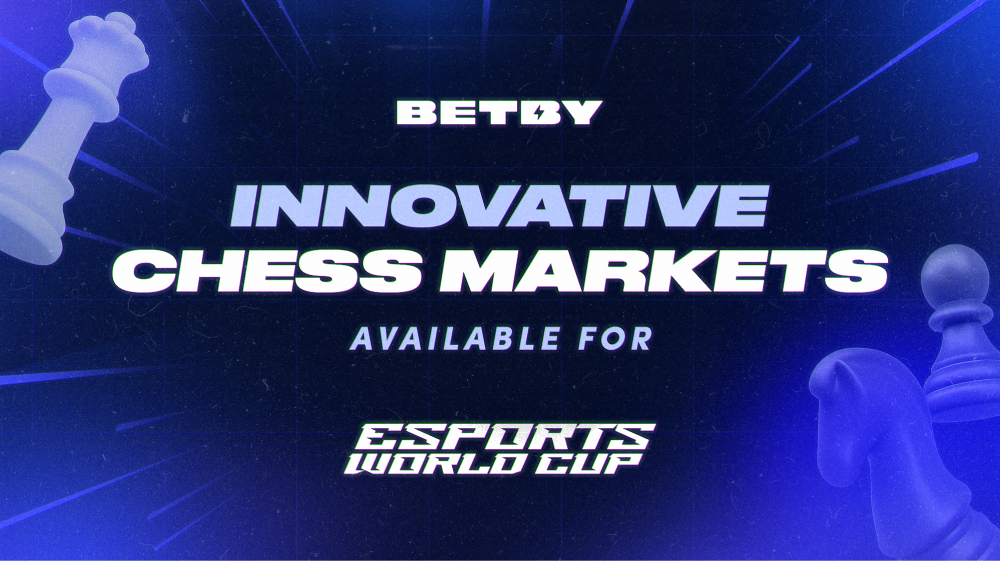
BETBY, the innovative sportsbook supplier, is redefining how chess is experienced in the betting world, launching an innovative suite of markets designed to deepen engagement and bring fresh energy to one of the world’s oldest strategy games.
Marking a new chapter for chess within the iGaming space, BETBY’s upgraded betting content portfolio goes far beyond traditional markets like outright winner or total moves. Bettors can now engage with detailed, event-specific outcomes including the first move made, the first piece captured, number of checks, castlings, and whether a game will feature a pawn promotion, an en passant, or end in stalemate. Several markets also focus on the timing of critical moments, such as whether a checkmate will occur before a certain move, offering more dynamic, real-time decision-making for players.
This launch follows six months of dedicated product development across BETBY’s chess vertical and reflects the company’s long-term vision for the game as a core part of its sportsbook strategy. With chess now officially included in the Esports World Cup, the timing marks a natural convergence of two verticals where BETBY continues to strengthen its position: esports and traditional chess.
As part of this expansion, BETBY is also introducing another exclusive: live betting on the Top Chess Engine Championship (TCEC), a prestigious AI-based tournament. While the event follows a defined schedule, it opens up a new betting experience through intense matchups between powerful engines, enriching the overall chess offering.
Currently, BETBY offers pre-match coverage for around 20 chess tournaments per month, totaling approximately 400 matches. The addition of these expanded markets marks a strategic leap forward in delivering a modern, high-engagement chess product to sportsbook partners and players.
“Chess has always been a passion of ours, and today we’re proud to announce the launch of a truly comprehensive chess offering,” said Kirill Nekrasov, Head of Sportsbook Product at BETBY. “By expanding our market depth and introducing innovative tournaments, including both traditional and AI-driven formats, we’re giving our partners and players a completely new way to engage with the game. Our vision is ambitious: we want chess and betting to become synonymous, to the point where no modern sportsbook feels complete without chess markets. We’ve already done this with Betby.Games and esports, now it’s time to do the same with chess.”
BETBY’s long-term global brand ambassador, five-time world chess champion Magnus Carlsen, will represent Team Liquid at the Esports World Cup. His participation in the tournament, which begins on July 7th, reinforces chess’s growing presence in global esports and its potential as a premium betting vertical.
The post BETBY REDEFINES CHESS BETTING WITH EXPANDED MARKET OFFERING AHEAD OF ESPORTS WORLD CUP DEBUT appeared first on European Gaming Industry News.
Esportes da Sorte
Esportes da Sorte celebrates Brazilian culture with Parintins and São João Sponsorships
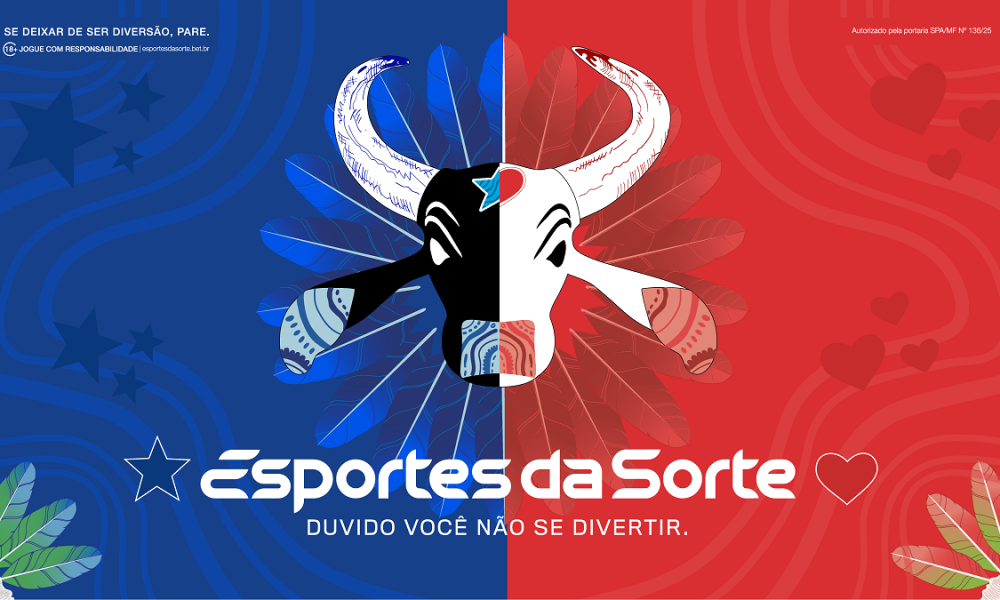
Esportes Gaming Brasil, the owner of Onabet and Esportes da Sorte, is making its debut at the 58th Parintins Folklore Festival with an interactive project that blends cultural promotion, economic development, and social responsibility.
The brand becomes the first regulated betting operator to offer institutional support to the event, which welcomes around 120,000 visitors and generates BRL 184 million in local economic activity, according to the Amazonas State Government.
This cultural commitment comes on the back of Esportes Gaming Brasil sponsoring 31 São João festivals during June in 27 cities across the Northeast and Southeast regions. This initiative strengthens the brand’s strategy of connecting with the public through the appreciation of Brazilian cultural expressions.
Esportes da Sorte’s focus was creating memorable experiences as each event featured scenography by Pernambucan artist Perron Ramos. Another notable element was the Vila Junina (June Village), a themed area blending traditional elements with interactive experiences. Classic games such as Pescaria da Sorte (Fishing of Fortune), Barraca do Beijo (Kissing Booth), and Argola da Sorte (Ring Toss) bring nostalgia to the festivities.
For the three-day Parintins Folklore Festival starting today, the brand will be energising Parintins with a series of experiences celebrating local culture. These include a panoramic lounge with a special view of the Bumbódromo, the Truck da Sorte — a space combining karaoke and free hydration — as well as a Social Arena installed in the Garantido and Caprichoso neighborhoods, featuring artistic performances, rest areas, free water distribution, and Instagram-worthy spots. Festivalgoers will also be able to get their hands on custom giveaways throughout the festival. All elements of the visual project are inspired by Amazonian art. The graphics feature illustrations by Curumiz, a Parintins-based duo formed by Alziney Pereira and Kemerson Freitas.
Sofia Aldin, CMO of Esportes Gaming Brasil, the group behind the brand commented: “Esportes Gaming Brasil cares passionately about regional values and strengthening Brazilian popular culture. It’s more than simply showcasing our brand, we want to create value for the people who live for events like the Parintins Folklore Festival and the São João festivals. Being part of these events backs our strategy of supporting traditions that drive local economies and celebrate regional identities.”
The post Esportes da Sorte celebrates Brazilian culture with Parintins and São João Sponsorships appeared first on Gaming and Gambling Industry in the Americas.
-

 AGCO6 days ago
AGCO6 days agoAGCO Fines Great Canadian Casino Resort Toronto $350,000 for Serious Regulatory Violations Linked to Impromptu After-Party on Gaming Floor
-

 Africa6 days ago
Africa6 days agoALA Hosted Seminar on Artificial Intelligence and Cybersecurity
-

 Canada6 days ago
Canada6 days agoIGT and Atlantic Lottery Sign Eight-Year Video Lottery Central System Technology Agreement
-

 Africa5 days ago
Africa5 days agoDRC Signs MoU for Public-Private Partnership with Burundi’s East African General Trade Company
-

 Latest News6 days ago
Latest News6 days agoUnlock Top-Tier Deals and Careers: Parimatch joins iGB L!VE 2025
-

 Blokotech6 days ago
Blokotech6 days agoBlokotech unveils Cristian Tonanti as new Casino Partnership Manager
-

 Brazil6 days ago
Brazil6 days agoEsportes da Sorte holds forum on “Integrity in Sports” with Ceará and Náutico
-

 First6 days ago
First6 days agoFIRST and Genius Sports Extend Landmark Data Partnership, Powering Continued Growth











